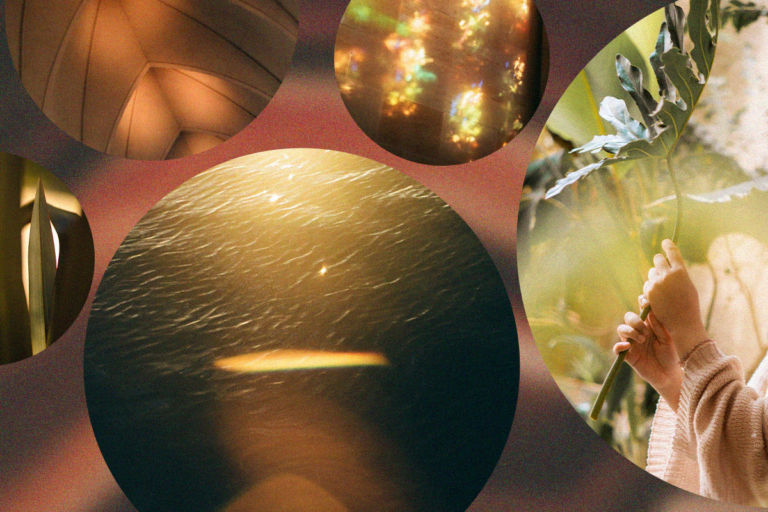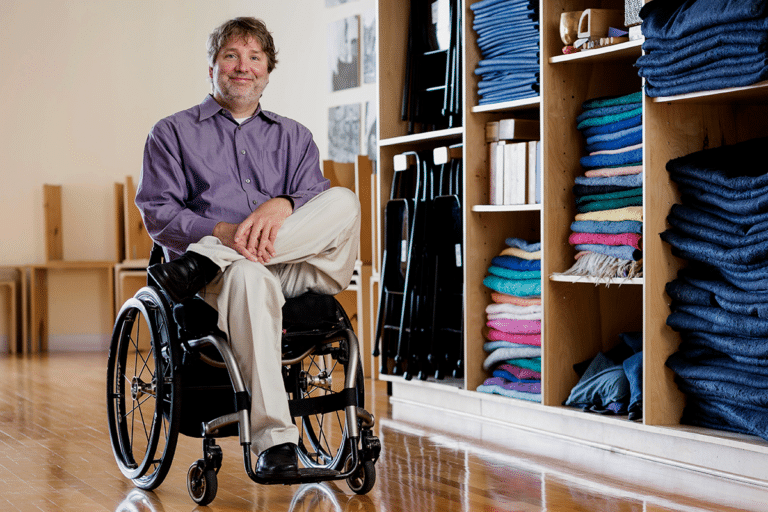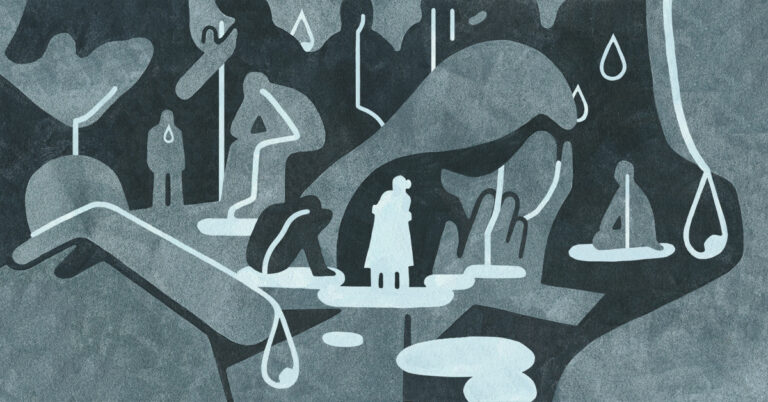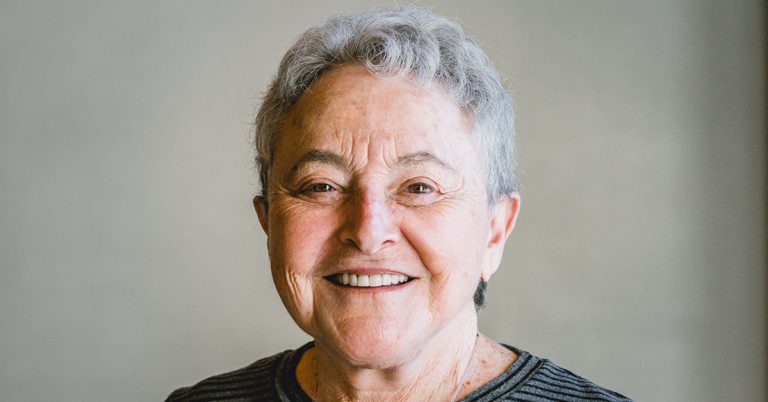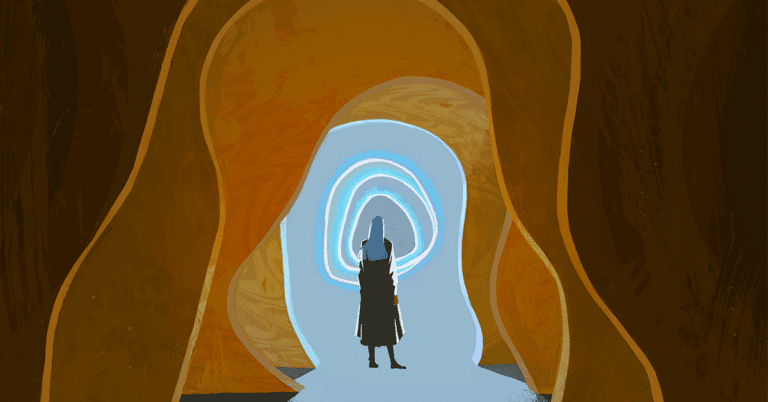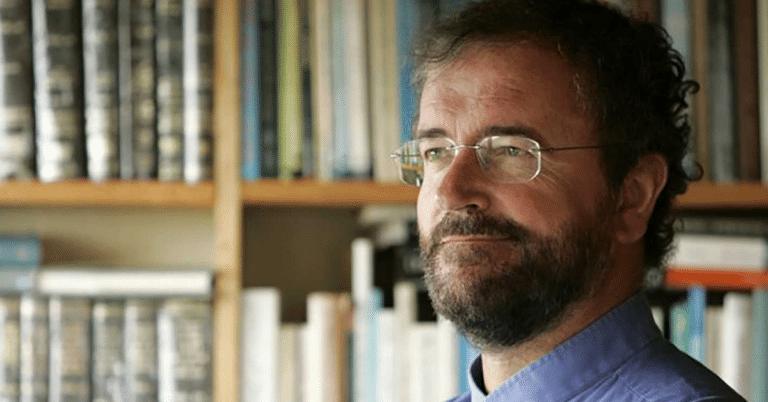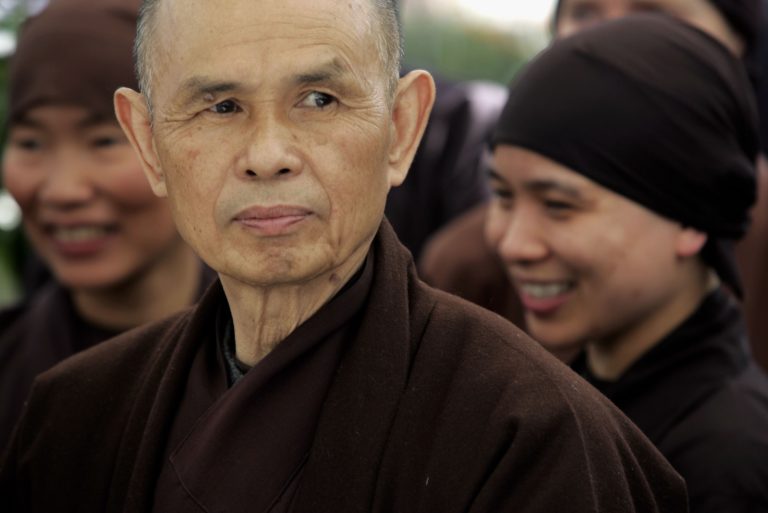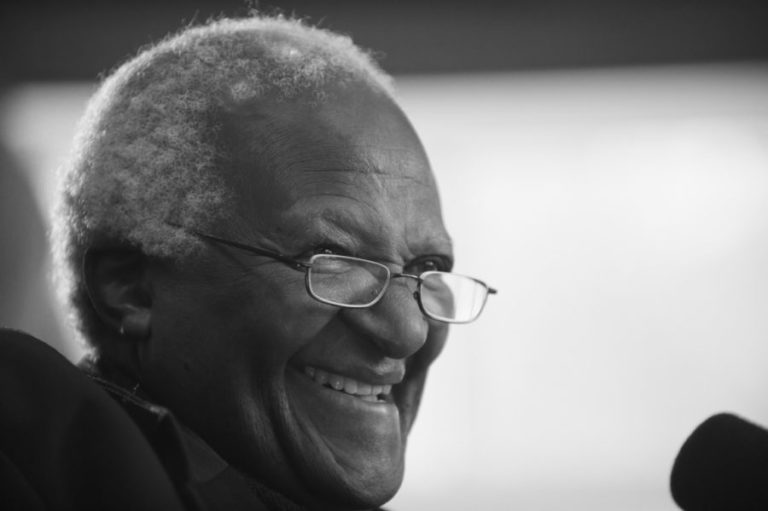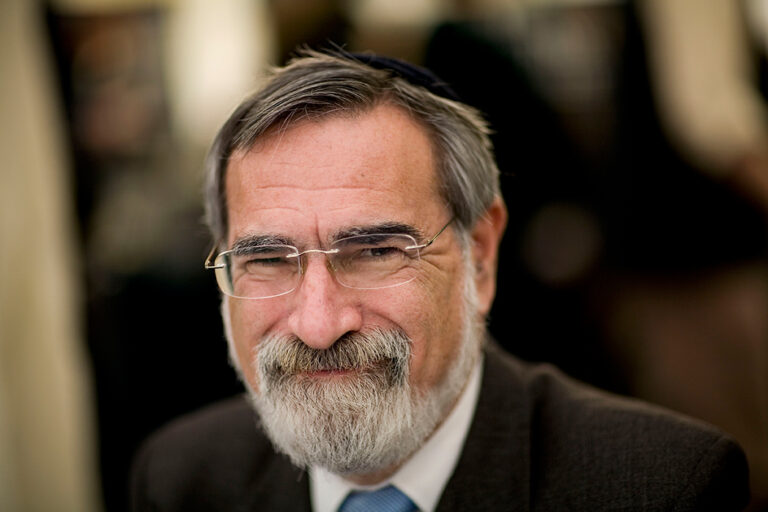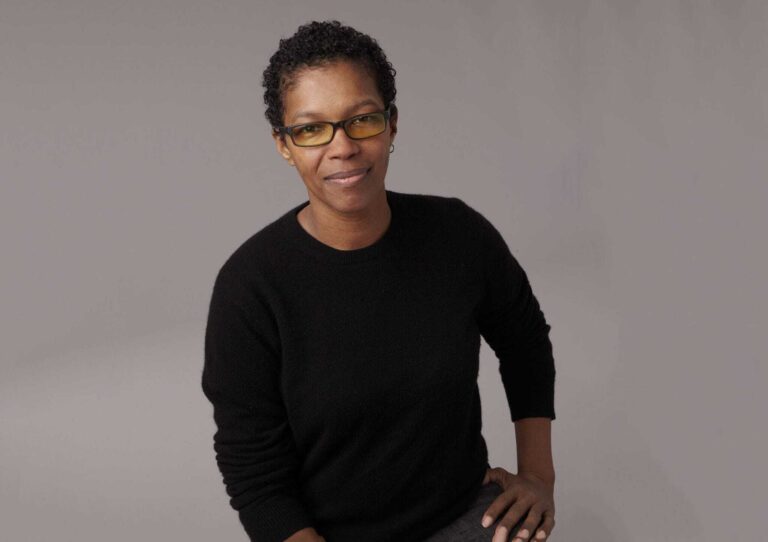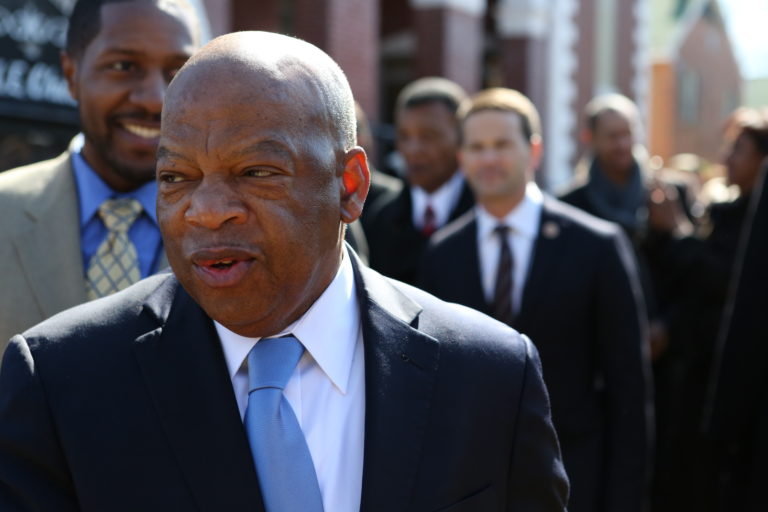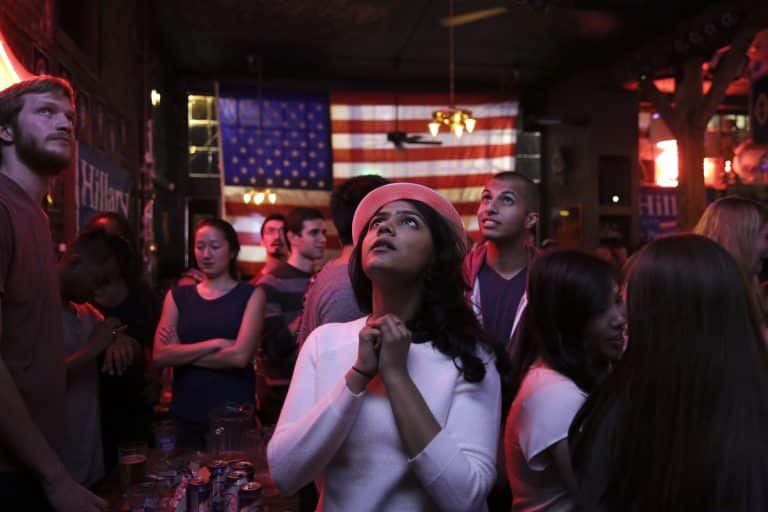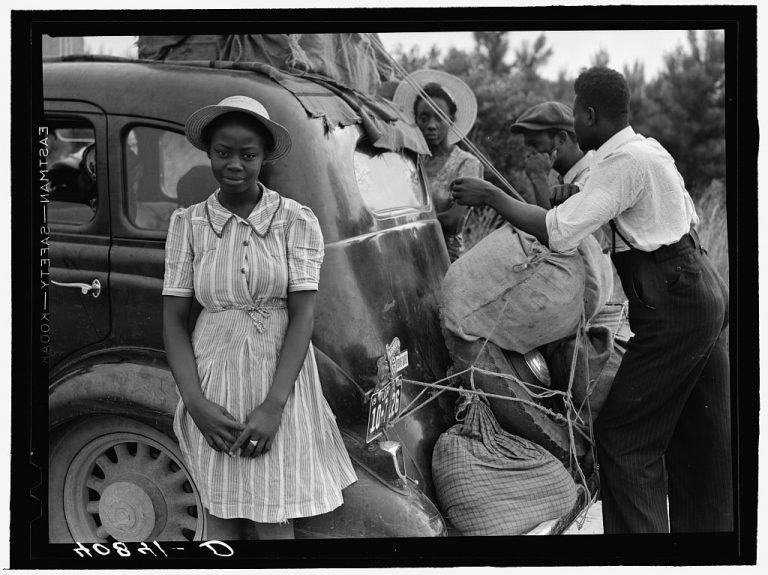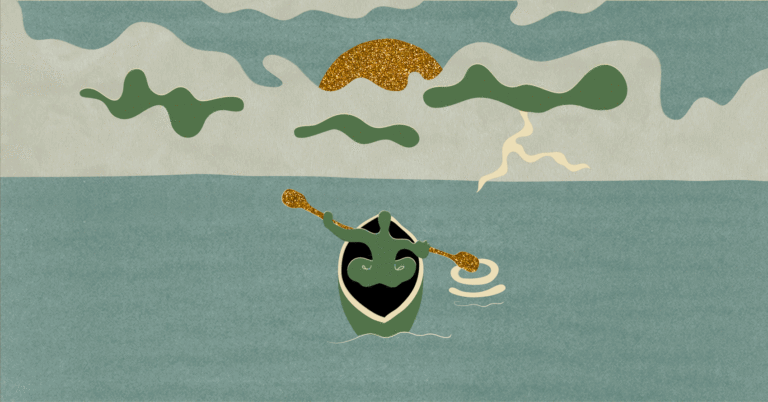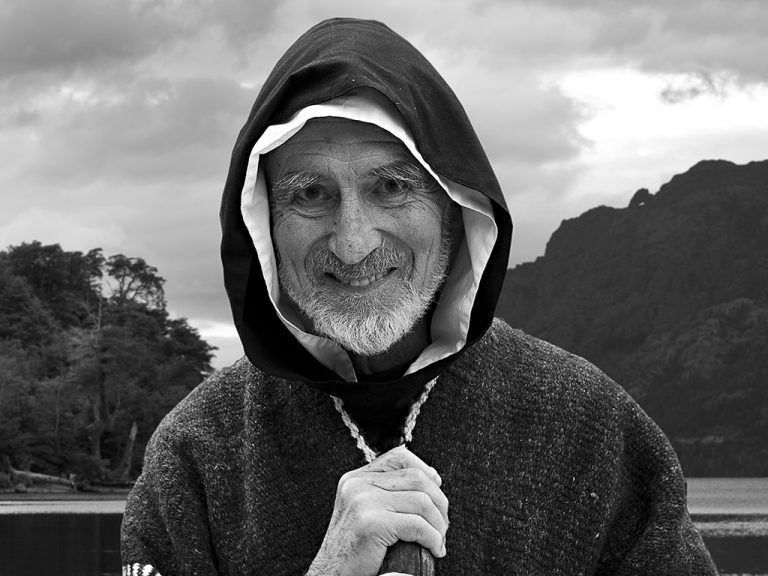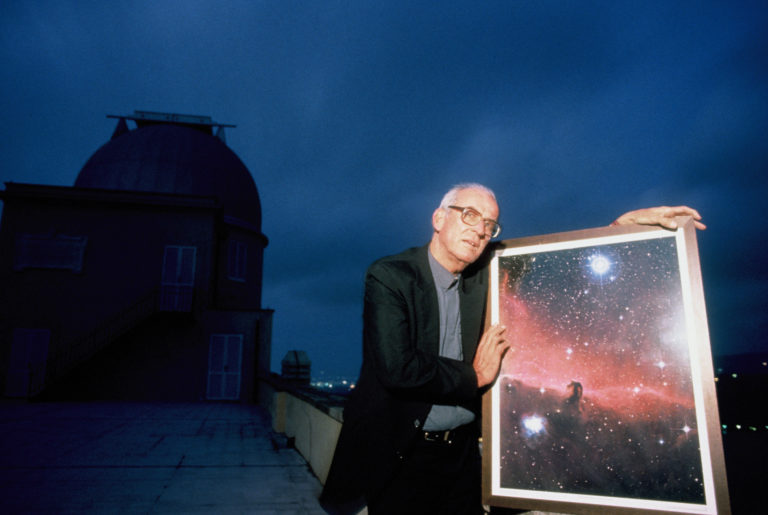The Venerable Thich Nhat Hanh, revered Zen master, teacher, and poet, died on January 22, 2022, in his native Vietnam. Brother Thay, as he was known by his community and students, transmuted what he had experienced of chaos and bloodshed in his country and his life into an ability to speak with equal measures directness and compassion to the many conflicts and bewilderments of contemporary life. Martin Luther King Jr. nominated him for the Nobel Peace Prize. He was a great teacher of the wonderful practice of “walking meditation.” He taught a way of living to face suffering, fear, and violence inside and beyond ourselves and yet to become “fresh, solid, and free.” Krista sat with him for this rare conversation in the early years of this show, and it has touched many. It is astonishing to re-experience the deep, enduring wisdom this monk leaves for our world now.
Spiritual Genius
Featured Items
“I like it much better than ‘religious’ or ‘spiritual’ — to be a seeker after the sacred or the holy, which ends up for me being the really real.”
– Rev. Barbara Brown Taylor
From Krista, about this week’s show:
It’s fascinating to trace the arc of spiritual searching and religious belonging in my lifetime. The Episcopal priest and public theologian Barbara Brown Taylor was one of the people I started learning about when I left diplomacy to study theology in the early 1990s. At that time, she was leading a small church in Georgia. And she preached the most extraordinary sermons, and turned them into books read far and wide. Then in 2006, she wrote Leaving Church — about her decision to leave her life of congregational ministry, finding other ways to stay, as she’s written, “alive and alert to the holy communion of the human condition, which takes place on more altars than anyone can count.”
She’s written other books since, with titles like An Altar in the World, Learning to Walk in the Dark, and Holy Envy: Finding God in the Faith of Others. Being in the presence of Barbara Brown Taylor’s wonderfully wise and meandering mind and spirit, after all these years of knowing her voice in the world, is a true joy. I might even use a religious word — it feels like a “blessing.” And this is not a conversation about the decline of church or about more and more people being “spiritual but not religious.” We both agree that this often-repeated phrase is not an adequate way of seeing the human hunger for holiness. This is as alive as it has ever been in our time — even if it is shape-shifting in ways my Southern Baptist and Barbara’s Catholic and Methodist forebears could never have imagined.
View
- List View
- Standard View
- Grid View
44 Results
Filters
A wondrous, buried treasure from the 20-year On Being archive, with renowned yoga teacher Matthew Sanford. Be prepared, as you listen to what follows, to take in subtleties and gracefulness you’ve never before pondered — or tried to feel in yourself — in the interplay between your mind and your body.
Matthew has an immensely energetic physical presence. He has been paralyzed from the chest down since a car accident in 1978. But he likes to say that his experience is only more extreme, not so different, from that of everyone else. He’s written, “We are all leaving our bodies — this is the inevitable arc of living. Death cannot be avoided; neither can the inward silence that comes with the aging process.” Matthew’s intricate knowledge of that “inward silence,” which he was forced to befriend after the noisy connections which most of us take for granted were severed — it’s revelatory. So is his insistence that it’s not possible to live more deeply in your body — in all its grace and all its flaws — without becoming more compassionate towards all of life. And: if you do yoga, you will never think about what it is affecting inside you in the same way again.
Krista sat with Matthew Sanford in 2006, just after he’d published his beautiful book Waking: A Memoir of Trauma and Transcendence.
“I like it much better than ‘religious’ or ‘spiritual’ — to be a seeker after the sacred or the holy, which ends up for me being the really real.”
– Rev. Barbara Brown Taylor
From Krista, about this week’s show:
It’s fascinating to trace the arc of spiritual searching and religious belonging in my lifetime. The Episcopal priest and public theologian Barbara Brown Taylor was one of the people I started learning about when I left diplomacy to study theology in the early 1990s. At that time, she was leading a small church in Georgia. And she preached the most extraordinary sermons, and turned them into books read far and wide. Then in 2006, she wrote Leaving Church — about her decision to leave her life of congregational ministry, finding other ways to stay, as she’s written, “alive and alert to the holy communion of the human condition, which takes place on more altars than anyone can count.”
She’s written other books since, with titles like An Altar in the World, Learning to Walk in the Dark, and Holy Envy: Finding God in the Faith of Others. Being in the presence of Barbara Brown Taylor’s wonderfully wise and meandering mind and spirit, after all these years of knowing her voice in the world, is a true joy. I might even use a religious word — it feels like a “blessing.” And this is not a conversation about the decline of church or about more and more people being “spiritual but not religious.” We both agree that this often-repeated phrase is not an adequate way of seeing the human hunger for holiness. This is as alive as it has ever been in our time — even if it is shape-shifting in ways my Southern Baptist and Barbara’s Catholic and Methodist forebears could never have imagined.
The conversation of this hour always rises as an early experience that imprinted everything that came after at On Being. Dr. Rachel Naomi Remen is one of the wise people in our world. She trained as a doctor in a generation that understood death as a failure of medicine. Yet her lifelong struggle with Crohn’s Disease and her pioneering work with cancer patients shaped her view of life. Becoming whole, she teaches, is not about eradicating our wounds and weaknesses; rather, the way we deal with losses, large and small, shapes our capacity to be present to all of our experiences. That arresting notion, and the distinction Rachel Naomi Remen draws between curing and healing, makes this an urgent offering to our world — of healing we are all called to receive and to give.
A few years ago, Krista hosted an event in Detroit — a city in flux — on the theme of raising children. The conversation that resulted with the Jewish-Buddhist teacher and psychotherapist Sylvia Boorstein has been a companion to her and to many from that day forward. Here it is again as an offering for Mother’s Day — in a world still and again in flux, and where the matter of raising new human beings feels as complicated as ever before. Sylvia gifts us this teaching: that nurturing children’s inner lives can be woven into the fabric of our days — and that nurturing ourselves is also good for the children and everyone else in our lives.
April 28, 2022
Pádraig Ó Tuama
“This fantastic argument of being alive”
Pádraig Ó Tuama is a friend, teacher, and colleague to the work of On Being. But before that was true, Krista took a revelatory trip to meet him at his home in Northern Ireland, a place that has known sectarianism and violent fracture and has evolved, not to perfection, yet to new life and once unimaginable repair and relationship. Our whole world screams of fracture, more now than when Krista sat with Pádraig in 2016. This conversation is a gentle, welcoming landing for pondering and befriending hard realities we are given. As the global educator Karen Murphy, another friend of On Being and of Pádraig, once said to Krista: “Let’s have the humility and the generosity to step back and learn from these places that have had the courage to look at themselves and look at where they’ve been and try to forge a new path with something that resembles ‘together’ … Right now we should be taking these stories and these examples and these places and filling our pockets and our lungs and our hearts and our minds with them and learning deeply.” And that’s what this hour with Pádraig invites.
“Prayers are tools not for doing or getting, but for being and becoming.” These are words of the late legendary biblical interpreter and teacher Eugene Peterson. At the back of the church he pastored for nearly three decades, you’d be likely to find well-worn copies of books by Wallace Stegner or Denise Levertov. Frustrated with the unimaginative way he found his congregants treating their Bibles, he translated the whole thing himself and that translation has sold millions of copies around the world. Eugene Peterson’s literary biblical imagination formed generations of pastors, teachers, and readers. His down-to-earth faith hinged on a love of metaphor and a commitment to the Bible’s poetry as what keeps it alive to the world.
February 17, 2022
Sharon Salzberg and Robert Thurman
Love Your Enemies? (Really?)
It’s a piece of deep psychological acuity, carried in many religious traditions: that each of us is defined as much by who our enemies are and how we treat them as by whom and what we love. In this episode, two legendary Buddhist teachers shine a light on the lofty ideal of loving your enemies and bring it down to earth. Across a half-century conversation and friendship, Sharon Salzberg and Robert Thurman have investigated the mind science behind this virtue and practice. They illuminate how to transmute the very real, very consequential and consuming energy of anger and hatred — and why love in fact can be a rational and pragmatic stance towards those who vex us. This is a conversation filled with laughter and friendship and with practical wisdom on how we relate to that which makes us feel embattled from without, and from within.
No conversation we’ve ever done has been more beloved than this one. The Irish poet, theologian, and philosopher insisted on beauty as a human calling. He had a very Celtic, lifelong fascination with the inner landscape of our lives and with what he called “the invisible world” that is constantly intertwining what we can know and see. This was one of the last interviews he gave before his unexpected death in 2008. But John O’Donohue’s voice and writings continue to bring ancient mystical wisdom to modern confusions and longings.
The Venerable Thich Nhat Hanh, revered Zen master, teacher, and poet, died on January 22, 2022, in his native Vietnam. Brother Thay, as he was known by his community and students, transmuted what he had experienced of chaos and bloodshed in his country and his life into an ability to speak with equal measures directness and compassion to the many conflicts and bewilderments of contemporary life. Martin Luther King Jr. nominated him for the Nobel Peace Prize. He was a great teacher of the wonderful practice of “walking meditation.” He taught a way of living to face suffering, fear, and violence inside and beyond ourselves and yet to become “fresh, solid, and free.” Krista sat with him for this rare conversation in the early years of this show, and it has touched many. It is astonishing to re-experience the deep, enduring wisdom this monk leaves for our world now.
The remarkable Archbishop Emeritus of Cape Town and Nobel Laureate died in the closing days of 2021. He helped galvanize South Africa’s improbably peaceful transition from apartheid to democracy. He was a leader in the religious drama that transfigured South African Christianity. And he continued to engage conflict well into his retirement, in his own country and in the global Anglican communion. Krista explored all of these things with him in this warm, soaring 2010 conversation — and how Desmond Tutu’s understanding of God and humanity unfolded through the history he helped to shape.
Rabbi Sacks was one of the world’s deepest thinkers on religion and the challenges of modern life. He died last week after a short battle with cancer. When Krista spoke with him in 2010, he modeled a life-giving, imagination-opening faithfulness to what some might see as contradictory callings: How to be true to one’s own convictions while also honoring the sacred and civilizational calling to shared life — indeed, to love the stranger?
September 10, 2020
angel Kyodo williams
The World Is Our Field of Practice
This prophetic conversation, which Rev. angel Kyodo williams had with Krista in 2018, is an invitation to imagine and nourish the transformative potential of this moment — toward human wholeness. Rev. angel is an esteemed Zen priest and the second Black woman recognized as a teacher in the Japanese Zen lineage. She is one of our wisest voices on social evolution and the spiritual aspect of social healing.
An extraordinary conversation with the late congressman John Lewis, taped in Montgomery, Alabama, during a pilgrimage 50 years after the March on Washington. It offers a special look inside his wisdom, the civil rights leaders’ spiritual confrontation within themselves, and the intricate art of nonviolence as “love in action.”
Vincent Harding was wise about how the vision of the civil rights movement might speak to 21st-century realities. He reminded us that the movement of the ’50s and ’60s was spiritually as well as politically vigorous; it aspired to a “beloved community,” not merely a tolerant integrated society. He pursued this through patient-yet-passionate cross-cultural, cross-generational relationships. And he posed and lived a question that is freshly in our midst: Is America possible?
Go to the doctor and they won’t begin to treat you without taking your history — and not just yours, but that of your parents and grandparents before you. Pulitzer Prize-winning journalist Isabel Wilkerson points this out as she reflects on her epic work of narrative nonfiction, The Warmth of Other Suns. She’s immersed herself in the stories of the Great Migration, the movement of six million African Americans to northern U.S. cities in the 20th century. The book is a carrier of histories and truths that help make sense of human and social challenges at the heart of our life together now.
In this “spiritual book club” edition of the show, Krista and musician/artist Devendra Banhart read favorite passages and discuss When Things Fall Apart, a small book of great beauty by the Tibetan Buddhist teacher Pema Chödrön. It’s a work — like all works of spiritual genius — that speaks from the nooks and crannies and depths of a particular tradition, while conveying truths about humanity writ large. Their conversation speaks with special force to what it means to be alive and looking for meaning right now.
We’re in a season of renewal in the natural world and in spiritual traditions; both Easter and Passover this year are utterly transformed. It’s drawing us back to the wisdom of Br. David Steindl-Rast, who makes useful distinctions around experiences that are life-giving and resilience-making yet can feel absurd to speak of in a moment like this. A Benedictine monk for over 60 years, Steindl-Rast was formed by 20th-century catastrophes. He calls joy “the happiness that doesn’t depend on what happens.” And his gratefulness is not an easy gratitude or thanksgiving — but a full-blooded, reality-based practice and choice.
February 20, 2020
George Coyne and Guy Consolmagno
Asteroids, Stars, and the Love of God
The wise and beloved Vatican astronomer Father George Coyne died last week. Like most of the Vatican astronomers across history, he was also a Jesuit. More than 30 objects on the moon are named after the Jesuits who mapped it and ten Jesuits in history have had asteroids named after them. Father Coyne was one of the few with this distinction, alongside his friend and fellow Vatican astronomer Brother Guy Consolmagno. In a conversation filled with laughter, we experience the spacious way the two of them approached life, faith, and the universe.
The Pause
Join our constellation of listening and living.
The Pause is our seasonal Saturday morning ritual of a newsletter. Replenishment and invigoration in your inbox. Wisdom to take into your week. And when you sign up, you’ll receive ongoing, advance invitations and news on all things On Being.
Search results for “”
View
- List View
- Standard View
- Grid View
Filters
